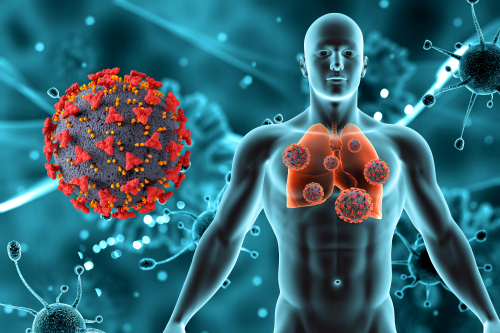Imagine the human body as a bustling metropolis, with immune cells serving as the guardians of this urban landscape. Just as cities rely on efficient infrastructure to maintain order and protect citizens, our immune system depends on intricate metabolic pathways to keep us healthy and defend against invaders. At the heart of this metabolic-human interface is glutathione, a versatile antioxidant that plays a crucial role in immunity.
Multifaceted Functions of Glutathione
Glutathione is more than just a chemical; it's a guardian that shields our cells from the ravages of oxidative stress, ensuring that our immune system functions optimally. This tripeptide antioxidant, composed of cysteine, glycine, and glutamic acid, regulates cellular redox status by scavenging reactive oxygen species (ROS). ROS can be both beneficial and detrimental; while they are essential for signaling pathways within cells, excessive levels can lead to cellular damage and inflammation. By neutralizing ROS, glutathione helps prevent oxidative stress that could otherwise compromise immune function.
Moreover, glutathione is integral to the induction of trained immunity—a phenomenon where innate immune cells remember past threats and respond more vigorously to future infections. This phenomenon is crucial for maintaining long-term immunity against pathogens. Glutathione's influence extends beyond mere defense; it primes the metabolic landscape of immune cells for inflammation. This priming ensures that our bodies can swiftly adapt to threats, leveraging glutathione's antioxidant properties to safeguard T cells and other immune components.
Metabolic-Human Interface
The metabolic interface is where the body's internal environment—regulated by metabolic pathways—intersects with external factors like diet, lifestyle, and environmental toxins. Here, glutathione serves as a sentinel molecule that monitors and responds to these changes.. A diet rich in antioxidants and sulfur-containing amino acids (like cysteine) supports glutathione synthesis, while a diet high in sugar can lead to oxidative stress and subsequent depletion of glutathione.
Exercise also impacts glutathione levels by inducing oxidative stress temporarily but stimulating the production of antioxidants like glutathione to counteract it.
Environmental Toxins and Glutathione
Environmental toxins are another critical factor influencing glutathione levels. Pollutants like heavy metals (lead, mercury) and pesticides can deplete glutathione by inducing oxidative stress or directly binding to glutathione molecules. For example, exposure to air pollution and cigarette smoke has been linked to decreased glutathione levels in lung cells, which can impair respiratory health and increase susceptibility to respiratory infections.
Dietary Interventions
Given the interplay between diet and glutathione levels, dietary interventions become essential for maintaining optimal immune function. Foods rich in sulfur-containing amino acids (methionine, cysteine and cystine) —like garlic and onions—can support glutathione synthesis by providing the necessary sources of cysteine. Our bodies can convert methionine and cystine (oxidized cysteine) into cysteine but that cannot (like Vitamin C -ascorbic acid) produce it from scratch, so these amino acids must be included in our diet.
Nutritional Supplements
While a balanced diet is crucial for maintaining adequate glutathione levels, nutritional supplements can provide additional support. N-acetylcysteine (NAC), a source of cysteine, has been shown to help maintain glutathione homeostasis when taken orally. However, it is important to note that while supplements can be beneficial, they should not replace a healthy diet; rather they should be used as adjuncts to support overall well-being.
But are homeostatic glutathione levels good enough?
It is without doubt that our diets, via the foods we eat or the inclusion of supplements (e.g., NAC or glutathione), contain sufficient amounts of cysteine sources to allow our cells to maintain glutathione homeostasis and remain healthy.
However, cellular homeostatic glutathione levels can be overwhelmed during aging and when we become ill due to the onset of new or increased streams of free radicals generated by dysfunctional metabolism. When this happens, our cells enter oxidative stress, which damages all cellular components, including nucleic acids, proteins, and lipids. This leads to a vicious cycle that diminishes the capacity of our cells to make glutathione and maintain homeostasis. As a consequence, the affected cells (and their associated organs) lose physiological function, which manifests as symptoms.
In these cases, homeostatic levels are not good enough, and we need to find a way to boost cellular glutathione to levels that are sufficient to neutralise these additional streams of free radicals. Currently, the only scientific and clinically proven supplement to achieve this is gamma glutamylcysteine (GGC). Glutathione is synthesized in cells by two sequential reactions. The first joins glutamate and cysteine to form GGC, and the second adds a glycine to form the tripeptide, glutathione. Homeostasis is regulated by glutathione, which inhibits the enzyme that makes GGC when cells are at homeostatic (set point) levels. So, GGC is essentially bypassing this inhibition and is immediately converted to glutathione as it enters a cell, even if the cell is at homeostasis.
Future of Glutathione Research
As our understanding of the metabolic-human interface continues to evolve, research into glutathione's role in immunity will remain a priority. Advances in omics technologies such as genomics and proteomics are shedding light on how variations in glutathione metabolism affect disease susceptibility. For instance, genetic variations that impact glutathione synthesis or degradation pathways may influence an individual's immune response to pathogens or environmental toxins.
Glutathione is more than just an antioxidant; it is a critical component of our immune system. By understanding its role at the metabolic-human interface—where diet, lifestyle, environmental toxins, and genetics converge—we can better appreciate why maintaining optimal glutathione levels is essential for overall health. Whether through dietary interventions or nutritional supplements, supporting glutathione synthesis can enhance our resilience against infections and chronic diseases.
The story of glutathione is one of intricate biological pathways and multifaceted functions. As we continue to explore this molecule's impact on immunity, we are reminded of the profound interplay between our internal environments and external influences. By sustaining a healthy balance between these factors, we can harness glutathione's potential fully, thereby bolstering our defenses against the ever-evolving threats to our well-being.
By delving into the world of glutathione and immunity, we uncover a tale of intricate biological pathways and multifaceted functions that underscore the importance of maintaining optimal glutathione levels for overall health and resilience. As we continue to explore this dynamic interplay, we gain valuable insights into how diet, lifestyle, environmental toxins, and genetics collectively shape our immune defenses.
Disclaimer: This Helpful Resources content is for informational purposes only and should not be considered medical, health or wellness advice. Please consult a medical, health or wellness professional before making any choices or decisions.
Fatigue and aging weighing you down? Oxidative stress is quietly compromising your body's health. Continual-G® with Glyteine® offers a scientifically proven solution to naturally boost glutathione levels, supporting your body’s defense from within. Restore your vitality, speed up recovery, and support healthier skin at the cellular level. Don’t wait for the damage to show — take control of your well-being today with Continual-G® and feel the difference from within. Shop Now!






